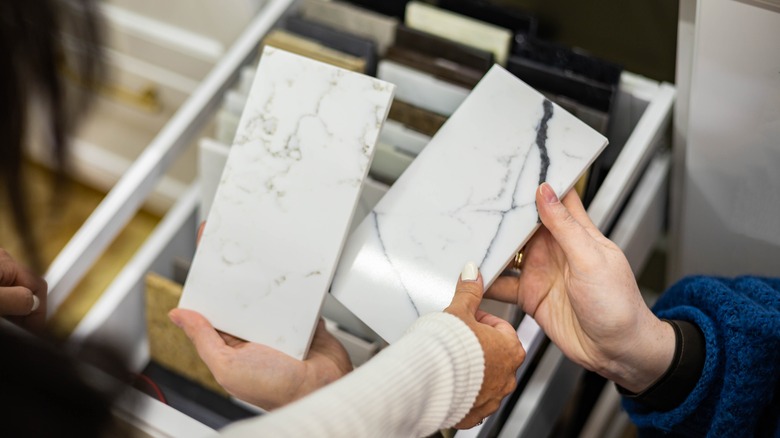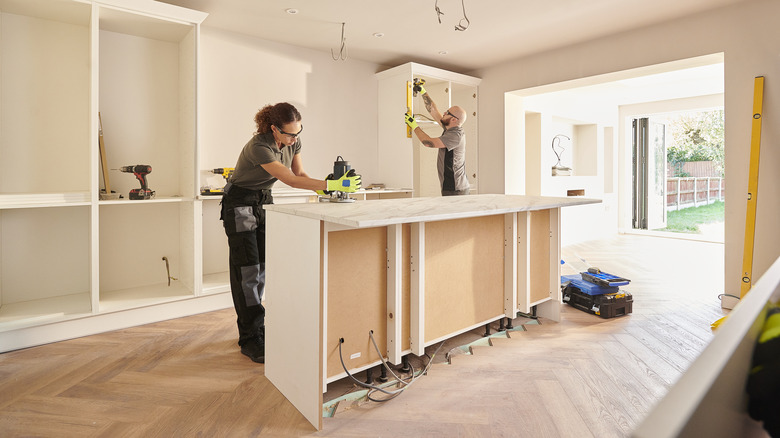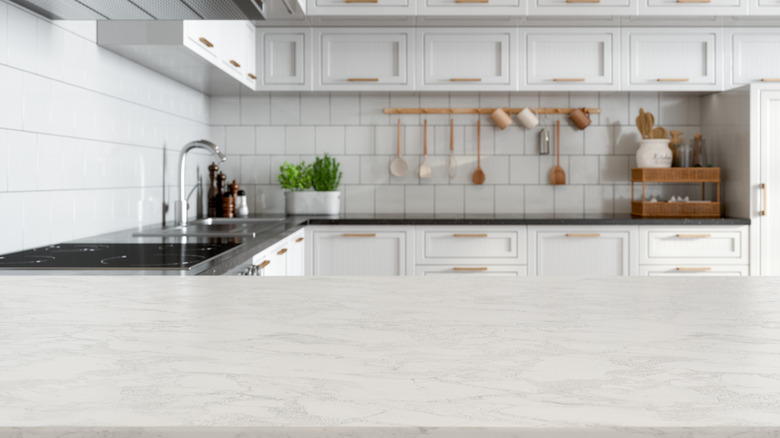The Downsides To Sintered Stone Countertops That Will Have You Thinking Twice
When it comes to countertops, one material that's less talked about is sintered stone. If you haven't heard of it before, sintered stone is a material that is made by combining, and then heating, various minerals until a solid stone is formed. It's generally considered an extremely durable material, thought to resist burns, scratches, and stains. While it does have plenty of upsides, there are also several downsides to sintered stone countertops that you should know before purchasing some.
Factors like its high price, elusiveness, tricky installation, and tendency to crack can all contribute to a negative experience if you opt for sintered stone countertops. While one or two of these issues can be dealt with on a case-by-case basis, other problems could make buying sintered stone countertops an endeavor that isn't worth it. If you're considering investing, here's all you need to know, so you know you're choosing the right countertops for your home.
Installing them yourself won't save you money
One of the biggest downsides of sintered stone countertops is their high cost. If you choose to get them installed by a professional, the cost will be around $60 to $100 per square foot. This price-per-foot can drive up your budget fast, no matter the size of your kitchen.
Moreover, if you're hoping to save some money by installing the countertops yourself, unfortunately, you won't be able to. You can't install sintered stone unless you're a professional. This is because sintered stone is extremely heavy, and requires special tools that only experts have. To make installation all the more complicated, once sintered stone is fitted to a space, it cannot be altered. If you need any changes made to the stone once it's been installed in a space, rather than make small adjustments, the whole countertop may need to be scrapped and re-done.
Heavy objects can still damage the countertops
Though it is a highly stain-resistant material, sintered stone is susceptible to cracks and chips. While it won't react badly to heat or if you drop something small like a fork onto it, if you drop something heavy like a cast iron pan on top, it's likely to show some damage. This is particularly likely if you drop something near the edge of your sintered stone countertop. You also can't repair sintered stone easily, meaning you may have to live with any points of damage, big or small — unless you replace the whole thing.
Another important thing to keep in mind is that sintered stone doesn't have a uniform look. If the fact that the edges of your countertops may not match the center will bother you, we don't recommend going ahead with a sintered stone countertop. Overall, sintered stone is still a countertop material worth considering, but things like its high price and likelihood of sustaining damage are important things to think about when shopping for a countertop.


